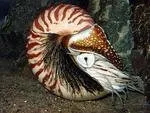
A new kind of content platform deserves a new kind of alien world, coining blockchain value with Proof of Contact, witnessed by a planet-hopping underground.
Chapter 1 of Squid & Grove — a serial novel
Words Copyright © 2018 by Mark Lane Vines. A Busy.org / Steemit.com online exclusive. Images from CC0 Wikimedia sources.
about the author
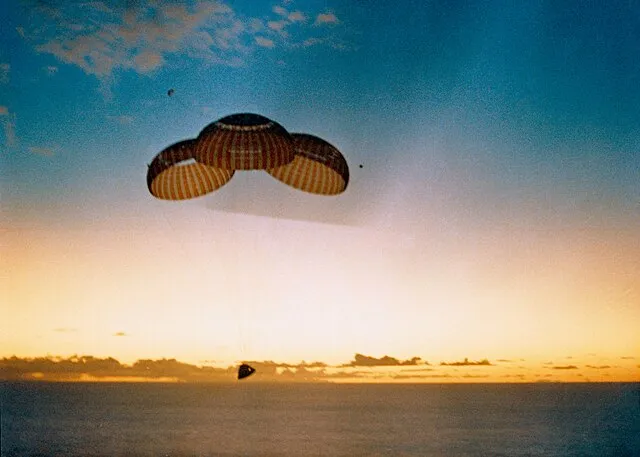
SPLASHDOWN pounds Yerlu’s reentry capsule with force she can feel in every leg. Before any rigid part of her can crack, her body drops a club’s width within the vessel, as a shock-absorbing layer of the floor expels its bladder gas and collapses under her. Then the capsule skips off the wave its impact created, using up the last of its forward momentum, and slams into the ocean one final time.
She takes a moment to savor the sensation as the vessel heels about, rocking in the wonderful waves. Then she reaches up with both tentacles, cranks the release, and flings open both halves of the hatch with her clubs. Fresh sea breeze and sunshine spill in. She launches herself out.
Briefly she arcs through the air. The plunge that follows is as blissful as Yerlu anticipated throughout her time off-planet. Buoyant rushing water massages every stretch of her skin. Her central systemic heart relaxes; her pulse load shifts to her branchial hearts. A delightful dizziness takes hold, real gravity feeling so strange after years of adjusting herself to the grotesque centrifugal substitute available in space.
She takes clock-slices of her own sweet time rising to the surface. Ignoring her vertigo, poking her eyestalks above the waves like periscopes, she orients herself. Not far away, upon tidal flats that ring the island near her splashdown site, she easily locates the surf-breaking line of pillow rocks that shelters the stand of wiregrove trees whose tangled roots were — very long ago — once her home. The tree that summoned her back to Shore is among them, its precise coordinates long known to her as those of her Teacher Tree.
Jetting with both siphons, even the one used normally for breath and speech, Yerlu hastens forward, nostalgic for the place where her life took shape, eager to learn the reason for her happy return, but even more eager just to swim fast for a while.
Upon reaching the shallows, with more and more of her body rising out of the water, she changes her mode of locomotion. Her legs alternately push against the seafloor, leaving indistinct cuttlehoof prints on either side of the grooves left in the dark sand by her shelltrike's pearly rollers.
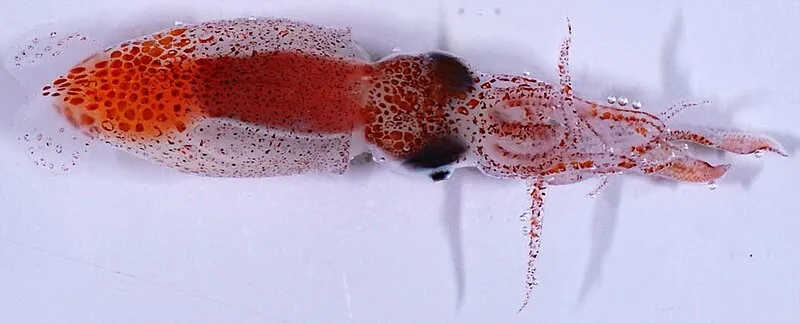
Her skin can see in color, unlike her eyes, and she notes with approval the small underwater streaks made by paralarvae of her own kind as they flee for the safety of the wiregrove roots. Bright changes of hue flash across their skins before they squirt out clouds of ink and vanish behind them by instantly adopting drab coloration. Yerlu can recall her own fear of adults when she was their age, when her gladius had yet to form hinges or shelltrike, too young for her arms to have turned into legs.
Now she is wading into the tangle herself, shaded by pale green leaves edged in a salty white exudate that sprinkles away in the breeze. Held aloft by its trunk, the branch system of a grown wiregrove tree is eight or nine times her own size. So is the visible part of its root system, which is mostly submerged, but includes many hollow pneumatophores that snorkel above the surface to keep air flowing through the tree.
She passes one such tree after another, ambling towards a familiar trench that punctuates this tidal flat — a collapsed lava tube, perhaps, or a place where stone was quarried long ago. Just outside the deep spot stands the tree that summoned her. Though it looks quite unlike her memories, she pays little heed to the differences. Wiregrove trees frequently rearrange their limbs. Less often, they can lose them. On deliberate occasions, they grow new ones.
Here, amid the roots, is where her mother hid the egg from which Yerlu hatched. Here now floats a small scalyfin, ritually zapped by the tree as a favor to her. She shoves the morsel into her beak and gratefully gulps it down.
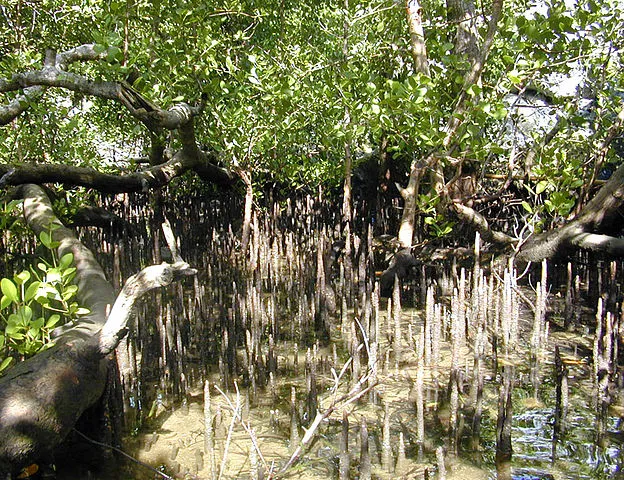
“Welcome back to Shore, vacuum voyager,” coos the tree.
“Teacher Tree,” she says, “after long journeys far away, I greet and remember you.”
“I am lucky enough to remember you, Yerlu Gillwave, but you do not remember me,” replies the tree.
This poses two puzzles. “What negates my remembrance of you, and what is lucky about yours of me?”
“Your Teacher Tree died and crumbled 2³ years after your landlubber phase began.”
A soft pang of sorrow seems to thump her systemic heart. “I,” Yerlu blurts, “pause now to grieve and commemorate.” Lungsquids with siphons, and wiregrove trees with pneumatophores, have spoken for ages the same fluting language. When lungsquids talk among themselves, their chromatophore-dotted skins convey much to each other, providing a visually supportive context for their words. When they talk with wiregrove trees, that aspect of communication is absent. Its lack makes tree-talk seem faintly unreal to lungsquid listeners, requiring more time to digest before the full meaning can really engage them.
This particular tree-utterance, belatedly delivering personal news of tragic import, seems especially empty of the emotional acknowledgement that lungsquids normally crave and provide.
Yerlu does not ask in words why nobody told her of her Teacher Tree’s death for years. Her chromatophores ask for her, with color and pattern changes evocative of horror and regret. Her skin cursively depicts typical scenes from Yerlu’s childhood under the departed tree, farewell scenes Yerlu would have made happen had she known her dear Teacher was dying, funeral scenes Yerlu would have attended had she known that special tree was dead.
The tree in her presence now answers neither the anguish nor the question that her skin’s eloquence poses, but does wait for a time, perhaps respectfully, before continuing. “Since then, I am the second consecutive tree to have encased the same wires and occupied the same place. The first was lethally struck by a freak form of lightning, shaped like one of your trike pearls. Given the conductivity of wire, I am lucky that the bolt grounded out with little damage to memory.”
This reminds Yerlu that her mental state involves puzzlement as well as unexpected grief. “How could your memory be damaged if you were not the tree that the ball-bolt struck?”
“No lungsquid can fathom the selfhood of a wiregrove tree, even though your kind and mine share a spoken language. You are unitary. We are composites. Your perceptions, muscles, and memory all dwell in the same animal body and, presumably, all cease at its death. My senses and my zappers dwell in the tree that stands before you and spreads around you, but no sustained memory dwells there.”
Yerlu is not entirely astonished. After all, her prior conversations with trees and with her own kind have offered other clues to their species’ differences. And she has long suspected that an inflection point comes in every lungsquid’s life when the trees decide whether to confide in her. Realizing that her own moment of tree-truth might have come, she asks, “Where then does your memory dwell?”
“Straight down deep in the island’s volcanic rock, internal to pores and fissures there, but external to my conscious boundaries of self, lives a vast columnar colony of metallotactic microbes. They extruded a braid of branching wires, the same braid that every tree to have lived since then in the spot I occupy has encased. They formed, and still manipulate, the tiny magnetosomes that serve as the binary bits of a computerlike memory to which the wires connect me. When I die, unless my death is catastrophic at depth, subterranean memory will remain.”
“The wires inside you came from underground microbes?” Yerlu now recalls Hoyrew, Lawlurio, and Riφwel, childhood playmates who have scarcely crossed her mind since her landlubber phase began. “When I was a hatchling, the other paralarvae used to claim that you trees, upon sprouting, just grow your wires inside your limbs and roots.”
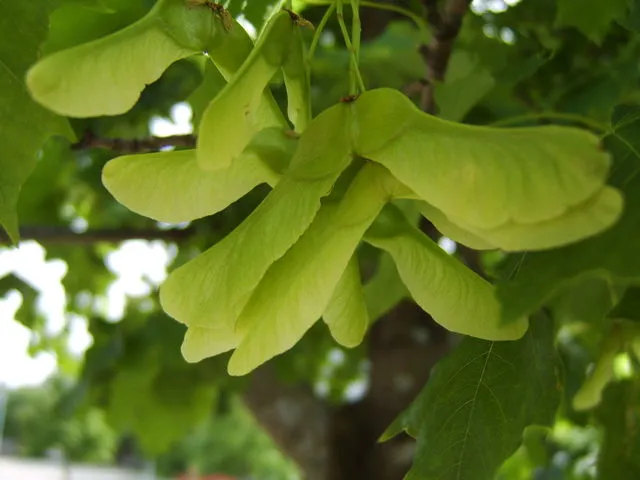
“You know better than that!” scoffs the tree. “You yourself have drawn wire from nickel softened by fire at Foundry Forge up yonder hill. You know metal cannot grow from nutrients and fluids the way plant wood and animal flesh grow. Could all the metal for a single tree’s braid be carried in a whirligig seed as it flutters across 2⁶s of inter-hoof-print spans aloft in the air? Could a propagule holding that much metal stay afloat long enough to give some seed a chance to alight upon its carpel?”
Put that way, of course, the idea is ridiculous. Once dry enough to be dropped into the wind, a whirligig seed is nearly weightless and quite small, no longer than the hooks in the suction cups on Yerlu’s tentacles and clubs, and smaller still if its merely membranous leaf-wings are disregarded.
A propagule is larger, yet small enough that Yerlu can hold one in her cupped clubs. And a propagule would fail if it could not float. Before a wiregrove tree can grow, at least one seed must fall on a ready floating propagule. And that propagule must have already lowered its tendrils down to the seafloor in the shallows and begun to root itself before it can receive any seed.
It dawns on Yerlu now that the tendrils of a propagule must perform another task on the seafloor besides rooting. They must find a braid of wire for any tree that might grow from their propagule to encase.
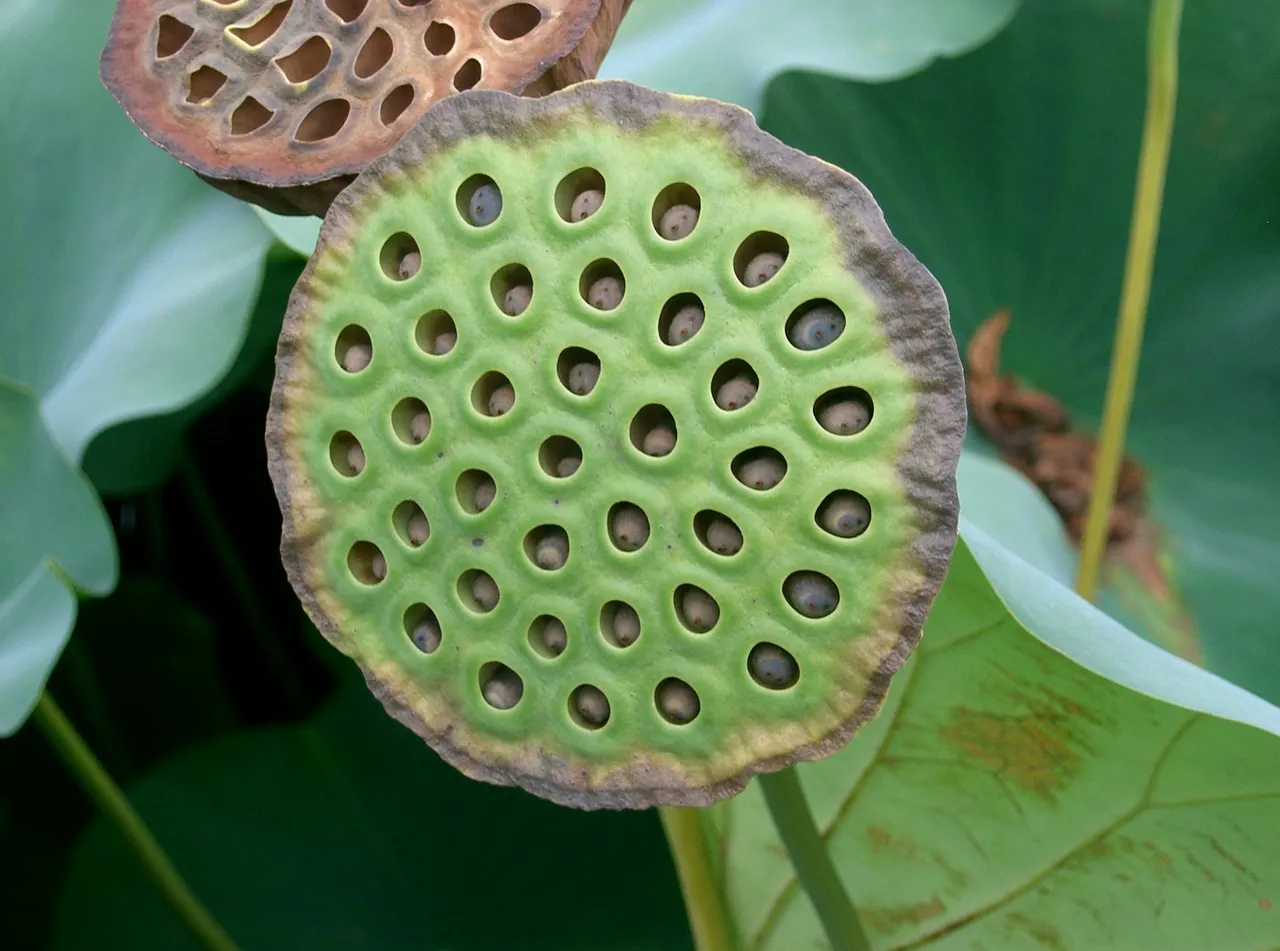
“You’re right,” Yerlu concedes. “A seed with so much weight would fall before it could ride the breeze. A propagule heavy with wire would sink. I guess we just thought that your bioelectric zappers could smelt metal out of ores that your roots found underground.”
“Unrealistic,” the tree points out. “We trees can make enough zap to stir our stems and stun the pesky scalyfins that we offer our hungry lungsquid friends. That’s nowhere near enough to liquify ore, especially buried ore that’s conductive enough to ground out most of any charge that might hit it.”
Yerlu reaches behind herself with both clubs in a gesture of surrender. “Okay, I get that now. But what makes you so sure that I myself have drawn wire? And how and why would you know where?”
“The wires inside us carry, to and fro, more than zaps, and more than the memories deeply stored beneath our buried roots. By resonant radio, our wires transmit and receive scenes and sounds, not only from tree to tree and grove to grove, but also from mikes and cameras. When we take an interest in one of you, as we very often do, we help each other follow you from afar, and your kind’s tech helps us even more.”
Yerlu pauses again to ponder all this. “Since you are not my Teacher Tree, yet stand in its place and know its memories, what shall I call you?”
The tree politely lowers branches on both sides of her, then raises them again. “Call me your Mentor Tree, if you are willing to honor me.”
“I greet and memorize you, Mentor Tree. Thank you for telling me more than I knew before, about your selfhood, and the origin and functions of the wires inside your kind.”
“You are welcome, Yerlu Gillwave.”
Despite not having taken enough time to digest their conversation, because her hatchling foolishness has featured in this discussion, Yerlu feels an urge to impress this tree with her adult reasoning powers. “The fact that your kind’s memory is anchored in stone,” she muses while her skin displays the shades of speculation, “must be the reason why no vacuum voyagers are trees. Lifting that much massive rock into orbit would require too much fuel.”
“If your premise were true,” her Mentor Tree retorts, “you might have identified the reason; but in fact it is false.”
“Do you mean to say that wiregrove trees have been launched alive into space as I and my colleagues have been launched?”
“I mean to say that wiregrove trees have been launched farther into space than any lungsquid yet ever was. Their wires, mind you, were detached from their endolithic microbial memories and connected with computer memories instead, since computers can be launched into orbit with far less fuel. But vacuum voyaging trees there have been and remain, out as far as the gravitational lens distance. In fact, they often sing to our grove, and the content of their songs is the reason I summoned you here from space.”
End of Chapter 1
Follow, upvote, and resteem for future installments.